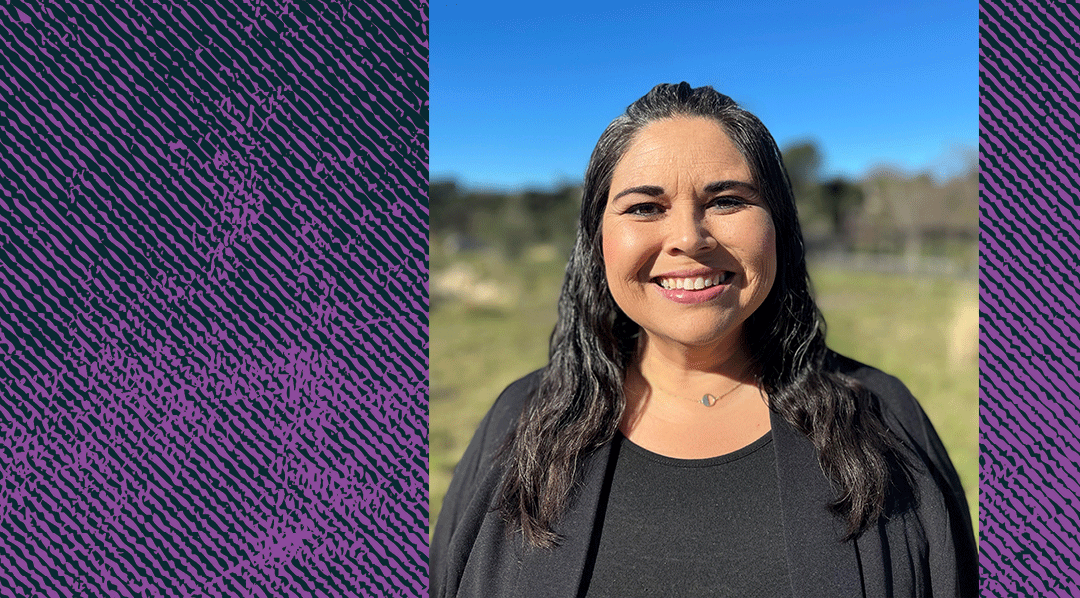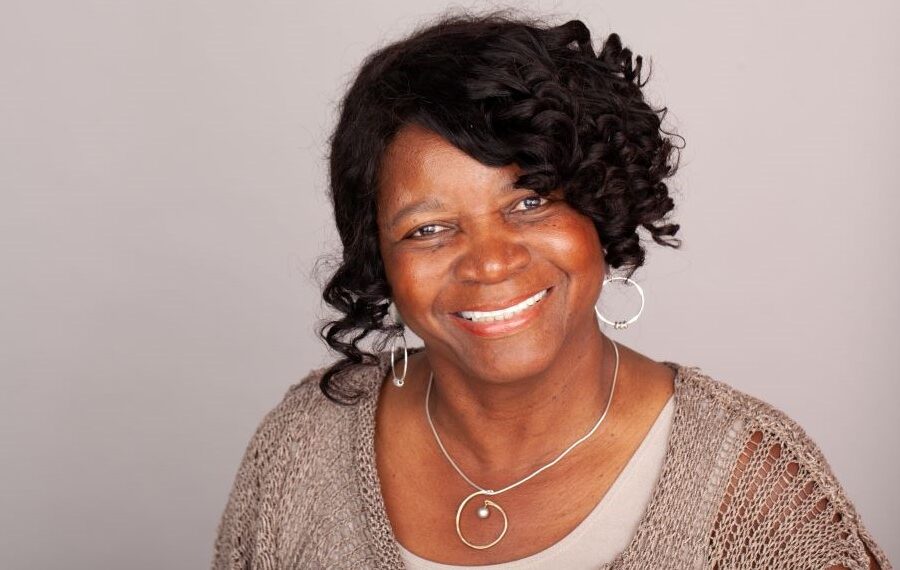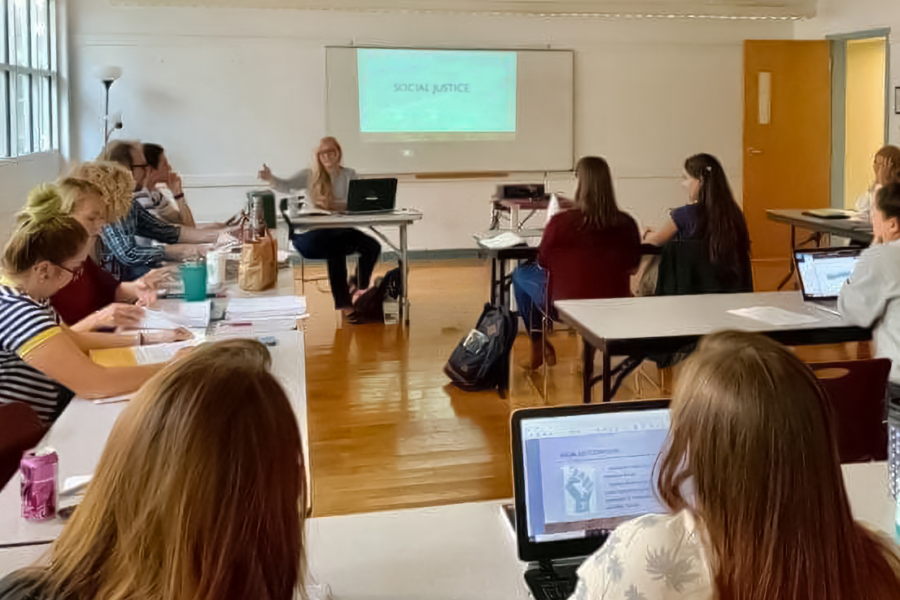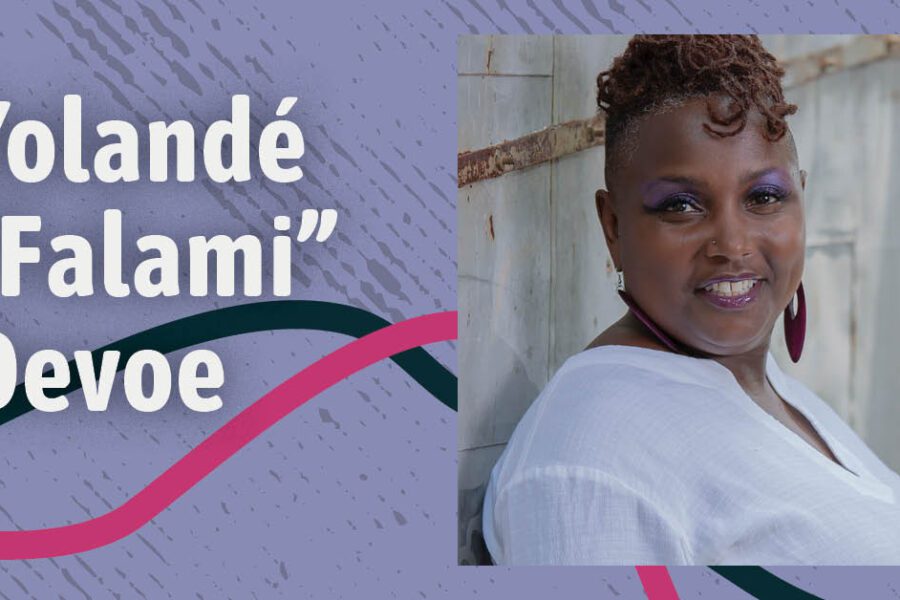As she picked up the phone to call the main office of the Santa Ynez Band of Chumash Indians, Emma Lombardi felt restless and nervous. This was the first time she called the tribal offices for reasons other than logistics. Even more nerve-wracking, this was her first attempt to connect with a part of her heritage and culture that she felt estranged from. But Lombardi made the call. And she made her request: that the tribal office connect her with someone who could teach her about Chumash culture and the Samala language of her ancestors. That conversation—and everything that followed—formed an inflection point in her understanding of herself, her community, and the path of her life. It even led to Lombardi becoming an intricate member of the Culture Department that is reaching younger and older generations alike.
When she made the call, Lombardi was in the second semester of Antioch University’s Individualized Masters of Arts program, which encourages students to discover both what they want to study and how they want to learn. Ashley Nielsen, that program’s chair, had been encouraging Lombardi to find a way that she could use this self-designed degree to combine her professional interests in nonprofit work with her deep-seated desire to reconnect with her Indigenous roots. This resonated with Lombardi, who decided to make that the centerpiece of her degree.
When Lombardi was growing up, she was connected to almost none of her Chumash heritage. While her grandfather and her father were Chumash, they never spoke the language at home or shared its cultural customs with her. Instead, she says, her childhood was “normal” for an American kid growing up in Santa Barbara in the ’80s.
As Lombardi started actually studying her ancestors, she learned about the teachings stewarded by Maria Solares. Solares is a seminal figure in the history of the preservation and revitalization of Chumash culture and the Samala language. Beginning in 1913, Solares, one of the last Samala Chumash speakers, worked alongside anthropologist John P. Harrington for four years to record and document the Samala Chumash language and Chumash customs—generational knowledge passed down through more than 13,000 years of pre-European contact. When transcribed, Solares’ teachings stretched across more than 100,000 pages.
This key act of cultural preservation came after hundreds of years of settler-colonial violence and the destruction of Chumash lives and culture. Chumash lands stretch from Malibu in the west all the way to Pasos Robles in the north and to the edge of the San Joaquin Valley in the east. Before contact with European colonizers, over 20,000 Chumash people lived on this land at any given time. The first to colonize the Chumash was the Spanish empire, which established five missions on Chumash land. After several decades of being ruled by an independent Mexico, the Mexican-American war led Chumash land to become part of the U.S. in 1846.
Through successive waves of violence, disease, and dispossession, the Chumash population was decimated—and the fact that Maria Solares carried so much cultural knowledge well into the 20th century shows remarkable resilience. And Lombardi, in making the work of Solares the center of her degree, decided to play a role in carrying on this tradition. As Lombardi says, “We look to the past to remember, and we won’t forget that our people were enslaved and our land was taken from us. But we look to the past not to hold anger or animosity but to move forward and embrace the fact that we’re here now; we have the opportunity to teach our future generations all of our culture and bring it back.”
The work of Maria Solares in recording and sharing this cultural knowledge is today playing a pivotal role in reviving Chumash customs and the Samala language. “It was almost lost,” explains Lombardi. “We have this opportunity to completely revitalize it and bring it back.”
Lombardi needed to find a teacher who was both Chumash and willing to teach about her culture, traditions, and the history of her ancestors. This was when she decided to see where a phone call might lead her. She ended up connecting with Nakia Zavalla, the Cultural Director of the Santa Ynez Band of Chumash Indians and a California State-credentialed Samala language teacher.
Lombardi and Zavalla created a seven-week course called “Hearing our Ancestors” where Lombardi learned directly from the teachings of Maria Solares with the guidance of Zavalla. While working with Zavalla, Lombardi also learned that she is a direct descendant of Maria Solares. These teachings allowed Lombardi to trace ten generations of lineage, making the connection that Maria Solares was Lombard’s sixth great-grandmother. Says Lombardi, “That’s amazing to be able to go back 10 generations.”
At the end of the seven weeks of working with Zavalla, Lombardi was struck by unwavering clarity: “I’m going to give back to my tribal community, and that’s what I want to do with my degree.” As Lombardi explains, “It was an ‘aha!’ moment where I was like, something’s been leading me here over and over again.”
The Individualized Master of Arts (IMA) program held space for culturally sensitive learning to unfold in ways that she didn’t imagine possible within the context of a master’s program. It still surprises Lombardi that she could learn about nonprofits in ways that honored and respected her heritage. She says, “Within three to four years, I live a completely different life. And I owe it all to the IMA program and to everybody who was involved.”
In 2022, Lombardi graduated from the IMA program. Her degree was focused on Nonprofit Resource Development, and her studies had reconnected her with her Indigenous roots. In some ways, Lombardi’s story is one about uncertainty—and the way that uncertainty, daunting as it may be, can also provide a generative place of radical growth and change.
Throughout the length of the program, moments of uncertainty were met with the choral refrain, Don’t worry, it will work out. “Not knowing where you are going but going along is always a little scary,” says Lombardi. “But the way this program is structured moves students seamlessly. Everything was one step at a time, and there were people supporting me the entire time.”
Lombardi began internalizing the trust she had in her mentors, and she began trusting her own decisions and intuition. Lombardi both self-designed classes like “Grant Writing” and enrolled in pre-existing classes at Antioch, like Wendy Peter’s class “Indigenous Survivance.”
Survivance, a critical term in Native American studies coined by Anishinaabe scholar Gerald Vizenor, fundamentally changed the framework through which Lombardi thinks about Native American histories. Survivance draws forth the many ways in which Indigenous peoples have not only survived settler-genocidal campaigns but actively resisted them.
At the end of her studies in the IMA program, Lombardi had to complete a capstone project. She chose to make a video, which she titled Retraditionalization, which uses the framework of survivance to demonstrate how ancestral traditions are being kept alive through education and cultural events centered around the sharing of Chumash knowledge and technologies.
Looking back, Lombardi is almost certain that the nervous feeling as she prepared to call the Chumash tribal office back in her second semester in the IMA was her ancestors guiding her to this moment. When Lombardi finished the IMA program, she was committed to enacting what she had learned and deepening her involvement within her tribe, which is why she still can’t believe the fortuitous timing of another phone call—this one coming only a few weeks after her graduation. “I don’t know how it happened,” says Lombardi, “but as soon as I graduated, Zavalla called me and said, ‘I have this position, and I think you’d be great for it.’”
Lombardi is currently the Culture and Language Programs Manager for the Santa Ynez Band of Chumash Indians Culture Department, where she uses her background in nonprofit management and event planning.
In October of 2023, Lombardi was given the great honor of dancing in Chumash Culture Day. Lombardi says it is hard to explain the feeling of this collective experience “I would have never thought that I was going to be a dancer,” she says. “It’s an honor. It’s an honor to make your regalia. It’s a spiritual experience to dance with other tribal members amongst hundreds of people who gather in the arena. I still don’t even know how this all manifested, but every single person that I touched on my way through the IMA program had a piece of that.”






